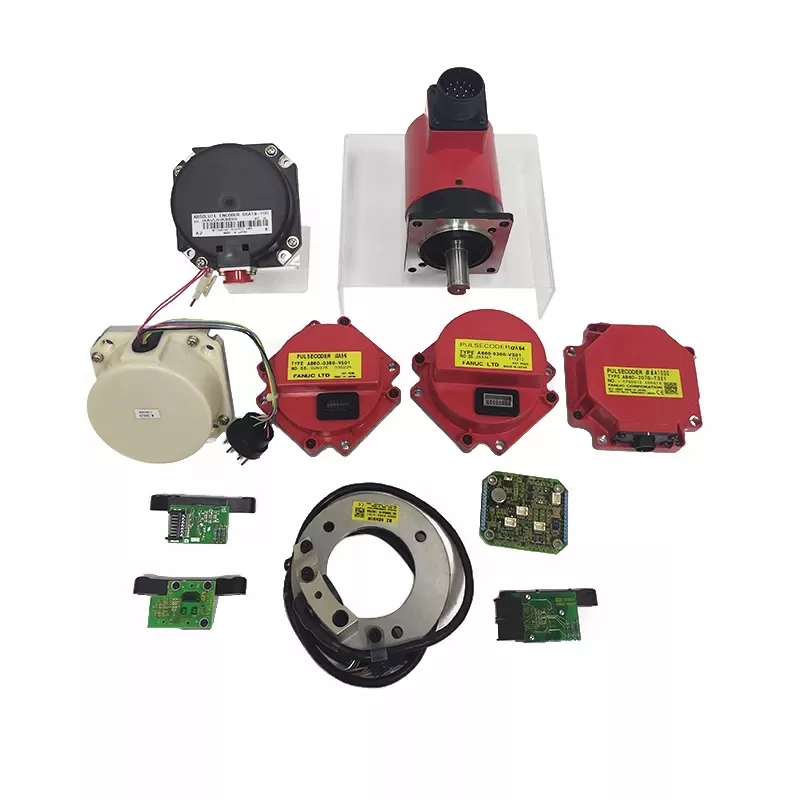Exploring the World of Fanuc Encoders
I. Introduction – What is a Fanuc encoder? – The importance of encoders in industrial automation II. Types of Fanuc Encoders – Absolute encoders – Incremental encoders – Hybrid encoders III. Applications of Fanuc Encoders – Robotics – CNC machines – Automotive industry IV. Advantages of Fanuc Encoders – High precision – Durability – Easy integration V. Common Issues with Fanuc Encoders – Malfunctioning due to dust and debris – Error messages and troubleshooting – Maintenance tips for prolonged lifespan VI. Conclusion – Recap of the benefits and versatility of Fanuc encoders – Future developments in encoder technology
1. How do Fanuc encoders differ from other brands? 2. Can Fanuc encoders be repaired or do they need to be replaced entirely? 3. Are there any software updates or firmware upgrades available for Fanuc encoders? 4. What is the typical lifespan of a Fanuc encoder before it needs to be replaced? 5. How can users ensure the proper calibration and alignment of Fanuc encoders? — As a content writing expert, I will now delve into the detailed exploration of Fanuc encoders for the blog post. Fanuc encoders are essential components in the world of industrial automation, providing precise feedback on position and speed to machines and systems. These encoders play a crucial role in ensuring the accuracy and efficiency of various processes, making them indispensable in a wide range of applications across industries. There are several types of Fanuc encoders available, each with its own unique features and benefits. Absolute encoders provide the exact position of an object at any given time, making them ideal for applications where accuracy is paramount. Incremental encoders, on the other hand, measure the change in position relative to a starting point, offering cost-effective solutions for less demanding tasks. Hybrid encoders combine the advantages of both absolute and incremental encoders, catering to diverse requirements in industrial settings. The versatility of Fanuc encoders extends to various fields, with applications in robotics, CNC machines, and the automotive industry. In robotics, encoders enable precise control of robotic arms and movements, ensuring smooth operation and avoiding collisions. CNC machines rely on encoders to accurately position cutting tools and execute complex machining operations with high precision. In the automotive industry, encoders are essential for monitoring vehicle speed, position, and alignment, contributing to the safety and performance of modern vehicles. One of the key advantages of Fanuc encoders is their high precision, enabling users to achieve tight tolerances and accurate measurements in their processes. These encoders are also known for their durability, with robust construction that can withstand harsh industrial environments. Additionally, Fanuc encoders are designed for easy integration with existing systems, simplifying the installation and setup process for users. Despite their reliability, Fanuc encoders may encounter issues such as malfunctioning due to dust and debris accumulation, which can affect their performance. In such cases, users may receive error messages indicating encoder problems and need to troubleshoot the issues promptly. Regular maintenance, including cleaning and inspection, can help prolong the lifespan of Fanuc encoders and prevent potential failures. In conclusion, Fanuc encoders play a vital role in the automation and control of industrial systems, offering unparalleled precision, durability, and versatility. As technology advances, we can expect further developments in encoder technology, enhancing the capabilities and performance of these critical components in industrial automation. By understanding the benefits and applications of Fanuc encoders, users can harness their full potential in optimizing processes and achieving efficiency in various industries.


Email:sales@vcocnc.com
Our website:https://www.vcocnc.com
Our Workshop 3D reality:https://v.holoworld.com.cn/v/virtualbuy.html…
